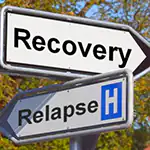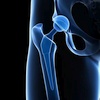










February 11, 2024 - In April 2023, patients from Swiss hospitals had the opportunity to provide a rating for 'their' hospital. The results of this nationwide survey, involving a total of 32,378 individuals, are once again intriguing. Many patients expressed high satisfaction levels, particularly in the french speaking region. However, satisfaction was comparatively lower in cantonal and university hospitals, as well as in the cantons of Aargau and Tessin.
Respondents were particularly pleased with some small private clinics. Larger hospitals, open to both privately insured and publicly insured individuals, also excelled, such as the Schulthess Klinik in Zurich, the Klinik Hirslanden in Zurich, the Hirslanden Klinik St. Anna in Lucerne, the Lindenhofspital in Bern, and the Hirslanden Klinik Aarau.
Genevans especially praised their hospitals. In the Romandy region, overall dissatisfaction is lower. However, the situation is different in the cantons of Aargau and Tessin, where patients are significantly less satisfied with many hospitals. Concerning deviations are also noted in other cantons.
The latest figures once again highlight that many cantonal and university hospitals cannot match the patient satisfaction levels achieved by private hospitals. Take a look at our 'Patient Satisfaction Best List'.

January 5, 2024 - Over the past three years, the rate of hospital-acquired decubitus ulcers has significantly increased. In comparison, Austria has markedly better figures.
Decubitus, also known as pressure sores or bedsores, refers to damage to the skin and, in more severe cases, the underlying tissue due to prolonged pressure.
The occurrence of hospital decubitus can often be avoided through appropriate nursing measures. The percentage of hospital-acquired decubitus ulcers serves as a good measure of nursing quality.
Regrettably, the frequency of hospital-acquired decubitus has significantly increased compared to previous measurements. While an average of 3.9% of patients were affected in 2019, this figure rose to 5.2% in 2022, representing a 33% increase. The original publication by ANQ/Berner Fachhochschule notes that "nursing quality concerning falls and decubitus in Switzerland has negatively changed since the outbreak of the pandemic."
Our neighbor, Austria, which records decubitus rates using the same methodology, shows us what is possible in decubitus prevention. In Austrian hospitals, only 1.9% of patients have decubitus ulcers, despite the ongoing pandemic. Swiss hospitals thus have significant room for improvement.
The reasons for the deterioration and Switzerland lagging behind Austria are unclear. However, it is clear that there is a need for action in this country, especially in the areas of education and training for nursing staff, raising awareness, optimizing processes, and establishing standards.
Take a look at our corresponding hospital comparison.

April 8, 2023 - Swiss musculoskeletal rehabilitation clinics treat patients with orthopaedic problems, after operations, accidents, acute or chronic joint diseases, etc. On behalf of the Confederation, the clinics measure the improvement in functional ability in important areas of daily life between the time of admission to the clinic and discharge. Fourteen clinics performed significantly better, but at 18 clinics the treatment effects were significantly below the norm. The Wolhusen Hospital (Lucerne Cantonal Hospital) achieved the best value but the bigger Zurich RehaZentrum Wald also showed impressive success. The clinics in German-speaking Switzerland perform better overall than those in French-speaking Switzerland. Read more.

March 14, 2023 - Patient feedback on the quality of Switzerland's 83 rehabilitation clinics is generally good. Nevertheless, there are differences: twelve clinics receive significantly better marks from patients. Patients are significantly less satisfied with eleven clinics. The private Clinic im Hof in Weissbad (AI) scores best. It has received very good feedback for years. The larger Adelheid Clinic in Unterägeri, which is also open to patients with basic health insurance, also has excellent patient satisfaction ratings. Read more about it.

January 5, 2023 - Which hospital has a good reputation? How is it determined? And: Which hospitals deserve to have a good reputation?
A good reputation is essential for every hospital, as it determines how many patients will go there for treatment. With a mediocre or poor reputation, the beds remain empty. Empty hospital beds are rarely openly talked about. However, they are the greatest horror of every hospital management, because costs remain but income is lost. Whenever a hospital had to close in the past, it was almost invariably due to too many empty beds.
How a hospital's reputation is established is currently undergoing major changes. Until now, it was often not the patients who judged this, but rather their family or speciality doctor on their behalf. «I am referring you to hospital X for this operation. This hospital has the best reputation.» It is possible that these proxy assessments are partly valid. However, many outpatient doctors do not deal with scientific measures of success. Mostly they refer their patients to a few hospitals they know and their experience of how well the hospital is doing is limited to a handful of cases.
In the past, the label «university hospital» was almost automatically associated with a good reputation. That has changed a lot recently. Things have also become more complicated in other respects: Hospitals today function like normal companies that offer their services on the market. They try to improve their reputation through clever communication and their advertising messages are visible on all channels. In addition, newspapers and online media have taken a liking to health topics. They are particularly interested in individual scandals that can severely damage a hospital's reputation, sometimes unfairly.
Rating platforms such as Google or our own (which-hospital.ch), where patients rate the hospital after a stay, allow an independent, albeit very subjective, view of the quality of a hospital.
Modern hospitals also try to improve their reputation by adorning themselves with quality labels. One example is the «Swiss Leading Hospitals», but certifications like EFQM or ISO are also part of it. We do not find such labels wrong in principle, but the claim to be «best in class» is rarely confirmed by measurements of treatment success.
We are convinced that the good reputation of a hospital should primarily be based on medical success proven by validated measurement methods. Our vision: Hospitals that demonstrably offer better results, i.e. better chances of recovery, should be regarded as top and there should be a lively public discussion about this.
Unfortunately, we are still a long way from this vision. The available measurement results are used far too little in public. In part, they are presented in a way that is not generally understandable, as for example by the ANQ. On the other hand, the validity of the measurements is sometimes also criticised, often unfairly and often by exactly the hospitals - who would be surprised - that perform poorly. Certainly, with every measurement there is also the risk of bias. However, this should not lead to the conclusion that scientific measurements are useless, should be kept under lock and key or should only be presented in a complex way; rather, the methods must constantly be optimised and made available to the public discussion.
In many areas, there are already very solid measurement results, e.g. in the case of re-operation rates for hip replacements, with sometimes striking differences between the hospitals. A hospital that can offer an artificial hip joint that functions for years (and thus quality of life) to significantly more patients deserves to have a good reputation. Or think of hospital infection rates, e.g. for bypass surgery (heart) where a Swiss university hospital deserves a lot of respect with an excellently low value of 1.1%, while another university hospital disappoints with a value that is 7 times higher.
As a patient, you have it in your hands. The more patients are guided in their choice of hospital by scientifically based quality measurements, the more hospitals will invest in their quality of results - and less in expensive advertising or non-transparent labels. Isn't that a goal worth pursuing?

December 4, 2022 - According to the measurements of treatment success in inpatient psychiatry in 2021, almost all patients are significantly better off when they leave a psychiatric clinic than when they enter. However, this improvement effect is not equally pronounced in all clinics.
If the patients' self-assessments are taken as a measure, 10 Swiss clinics perform significantly better, including the Hôpital psychiatrique in Prangins (CHUV), which shows the best value in Switzerland. It is striking that the top places are almost always occupied by clinics in French- and Italian-speaking cantons. The best clinic in German-speaking Switzerland in terms of treatment outcome from the patient's perspective is the Clienia in Littenheid.
The measurements of the improvement of symptoms by the therapists show a similar picture: here too, the clinics in French-speaking countries are usually better. For example, the very good result of the RFSM Centre de soins hospitaliers in Marsens (FR), which already had excellent values in the previous year, is impressive.
Some clinics scored significantly below average. Read more about Psychiatry treatment success from the patient's point of view and from the therapist's point of view.
Unfortunately, little is known about how sustainable the treatment effects of the individual clinics are. For many years, the ANQ has failed to initiate appropriate measurements on this important question - for example, by recording readmission rates or integration indicators, as has long been done in other countries.

October 31, 2022 - The measurements of hospital infection rates in 2021 are once again revealing. It is pleasing that the national average of infections in most operations has been tending to fall for years. This time, however, gynaecology gives us pause for thought: the infection rates for caesarean sections have risen slightly on average across Switzerland in recent years, and for hysterectomies (removal of the uterus) they have even doubled compared to the previous year!
With regard to hospital infections, there has been a pleasing downward trend in most operations over the years. In heart operations, for example, postoperative infections occurred in just under 5% of patients ten years ago; in the current year it is still 3.3%.
The development of average hospital infections in gynaecology over the last ten years, on the other hand, is unpleasant. An increase in hospital infections has been recorded for caesarean sections, especially since 2016. In the case of hysterectomies, one is amazed at the jump in infections, especially in 2021.
One can only speculate about the reasons for these increases: According to Swissnoso, apparently the proportion of high-risk patients in 2021 is higher than usual. Has the Corona pandemic had a very special influence in gynaecology?
Despite the unfavourable trend, there are also clinics in 2021 that stand out with very low infection rates in caesarean sections and hysterectomies. For us, this is a clear indicator of good quality. In particular, the Bethesda Hospital in Basel impresses us again in this respect. Some other hospitals - including larger ones - are not very convincing in terms of hospital infections for these two procedures. Just look at the corresponding infection rates for caesarean sections and hysterectomies in 2021 in detail.
We continue to be amazed at the cantonal differences in hospital infection rates. The canton of Valais continues to bring up the inglorious rear - as it has done for years.

May 30, 2022 - For the first time, the Federal Office of Public Health has published mortality rates for patients with Corona per hospital. Hospitals made special efforts during the pandemic. However, it is apparent that the proportion of deceased Corona hospital patients is not the same in all hospitals. The highest mortality rates for COVID-19 were over 20% in some hospitals, much higher than expected. On the other hand, some hospitals also had very low mortality rates. At one hospital, the rate was as low as 0%. Read more.

May 17, 2022 - This study measured the improvement of the patients' abilities in important areas of daily life (e.g. eating/drinking, dressing, getting around, communication) during their inpatient stay. Data from the 47 clinics examined are revealing: 15 clinics achieved a significantly above-average treatment success. The Siloah Clinic in Gümligen achieved by far the best outcome in geriatric rehabilitation and was already the front-runner in the previous year. Unfortunately, there are 12 clinics that scored well below average. Read more.

January 1, 2022 - How «sustainable» is the hospital stay? Good news: 24 of the 180 Swiss hospitals monitored have a significantly below-average number of relapses («potentially preventable readmissions»). Unfortunately, however, one also finds increased rates in some hospitals. Among the university hospitals, the Hôpitaux Universitaires de Genève (HUG) are significantly better. The university hospitals of Lausanne (CHUV), Bern (Insel) and Zurich, however, cannot convince in terms of readmission rates. Read more about it.

May 24, 2021 - Newly implanted artificial hip and knee joints should normally last for 15-20 years, often even longer. Unfortunately, in some cases a new operation is necessary within two years. The percentage of these problematic courses with re-operations is not the same in all hospitals. In some cases there are even significant differences. For patients who need a hip or knee prosthesis, a informed hospital choice can be worthwhile. The corresponding quality numbers have now been published and we have included them in our hospital comparison. Read more about: early re-operations for hip prostheses, for knee prostheses.

April 17, 2021 - For the second time, patients of psychiatric hospitals throughout Switzerland were asked about their satisfaction with «their hospital». The feedback is mostly good. 62 clinics provided meaningful data. 12 clinics achieved significantly above-average patient satisfaction. Five of these 12 were already significantly above average in the previous year. However, 8 clinics had significantly below-average ratings. Clinica Holistica Engiadina achieved the best patient satisfaction in German-speaking Switzerland - a result that was also statistically significant. Among the clinics with a primary care mandate, the significantly above-average rating of the Clienia Littenheid Clinic stands out positively. Read more about it.
October 14, 2020 - The burden of COVID patients in hospitals is still moderate - despite a high number of positively tested persons. In some cantons, certain areas (e.g. intensive care units) are sometimes working at high capacity. Anyone who currently needs hospital treatment should keep a close eye on developments. We will show you the current situation in the individual cantons. Read more about it.

May 13, 2018 - The National Association for the development of quality in hospitals and clinics (ANQ) has published the number of «potentially preventable readmission» per hospital for the first time in 2018. Our «bestlist relapses / readmissions» shows the differences.

August 23, 2016 - The National Association for the development of quality in hospitals and clinics (ANQ) has published the hospital-infection-rates after children's appendectomy (up to 16 years) for the first time in 2016. Our best ranking list «appendectomy - children» shows the differences.
June 22, 2016 - Satisfaction scores by parents of children and adolescents needing inpatient care in Swiss children’s hospitals or paediatric units of general hospitals have recently been included in our hospital comparison. (ANQ, Swiss National Association for Quality Development in Hospitals and Clinics).
January 17, 2016 - The ANQ recently published measurments of treatment outcome in Swiss psychiatric clinics for the first time (ANQ, Swiss National Association for Quality Development in Hospitals and Clinics). This data is aready included in our hospital comparison.